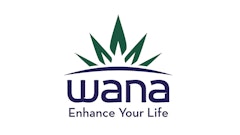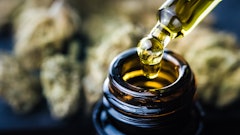
The number of licensed operators serving Georgia’s low-THC oil medical cannabis market could soon triple.
The GA Access to Medical Cannabis Commission (GMCC) approved the issuance of four provisional contract awards for Class 2 production licensure during its Nov. 15 public board meeting.
Class 2 production licenses allow for businesses to grow cannabis in indoor facilities—limited to 50,000 square feet of cultivation space—and manufacture oil and oil products with a 5% THC cap. These license holders are also eligible to apply for dispensary licenses.
The following companies are the four provisional awardees:
- FFD GA Holdings LLC (d/b/a Fine Fettle)
- TheraTrue Georgia LLC
- Natures GA LLC
- Treevana Remedy Inc.
These four companies will join the likes of Trulieve GA Inc. and Botanical Sciences LLC, which received their Class 1 production licenses in September 2022. Class 1 licensees are allowed to grow cannabis in facilities that include up to 100,000 square feet of cultivation space.
In addition, Trulieve and Botanical Sciences have a combined nine operating dispensaries in the state as well as partnerships to sell their oil products with more than 100 independent pharmacies throughout Georgia.
While Trulieve and Botanical Sciences have been the only vertically integrated operators up until this point, state law authorizes the GMCC to issue up to six production licenses.
After 69 applications were submitted for those licenses, GMCC regulators tentatively named the six winners at their July 2021 meeting, but more than a dozen unsuccessful applicants filed protests, and the licensing contracts were never finalized. Trulieve and Botanical Sciences were later issued their Class I licenses, but the four other companies listed above had their Class 2 licenses held up by litigation.
But now, nearly 8 1/2 years after former Gov. Nathan Deal signed legislation in April 2015 that made Georgia the 26th state in the nation to legalize medical cannabis, the commission has finally approached the point to where it is moving forward.
This comes on the heels of recent resolutions in several court cases, including rulings by the state Court of Appeals, which enabled the commission to take the actions it did on Wednesday with respect to the four Class 2 licenses. These actions were delayed “out of respect” for the judicial process, GMCC Chair Sid Johnson said during the public meeting.
However, the judicial process remains ongoing, meaning the actual issuance of licenses for the four approved licensees from Nov. 15 could take more time.
“The primary intent of [Wednesday’s awards] is to identify four sources to provide all of the needed goods and/or services for Class 2 low-THC oil production,” Johnson said. “However, GMCC reserves the right to make provisional awards at its discretion. This RFP [Request for Proposals] language was not challenged by any applicant during the pre-award protest period of the RFP and as provided for in the procedures of such protest. Any protest or issue that could have been raised during the pre-award protest stage but was not raised shall be waived.”
In other words, the commission has determined it is now in their authority to issue these four provisional awards to further the objectives of Georgia’s Hope Act passed in 2019. While the 2015 law allowed Georgia patients to possess low-THC oil, they had no means to access it until the 2019 legislation authorized the GMCC to oversee a limited-license market.
“In the preamble of the Hope Act, the Georgia General Assembly made clear that, and I quote, ‘Thousands of Georgians have serious medical conditions that can be improved by the medically approved use of cannabis and that the law should not stand between them and treatment necessary for life and for health,’” Johnson said. “The issuance of these provisional contract awards for Class 2 production licensure is not only consistent with the terms of the RFP and the purpose of the Hope Act; it is necessary.”
Johnson said the four Class 2 producers will play an important role in providing greater access as well as medical relief and treatment to patients throughout the state.
While Georgia’s Department of Public Health (DPH) reported earlier this year that there were 30,000-plus active patients in the state registry, officials said in September they had miscounted and there were actually closer to 13,000 patients. This miscue was a result of “anomalies,” including patients with expired cards who were never removed from the registry, patients who have died (roughly 3,400), patients with duplicate cards and even patients who were dually counted as caregivers, according to DPH.
Regardless, standing up a regulated program to provide access to these patients has been no small task, Johnson said this week.
“Implementing a new industry is not easy, but it’s worth it when the work improves the quality of life for thousands of patients in Georgia and for their loved ones who have been there since the beginning,” he said.


























